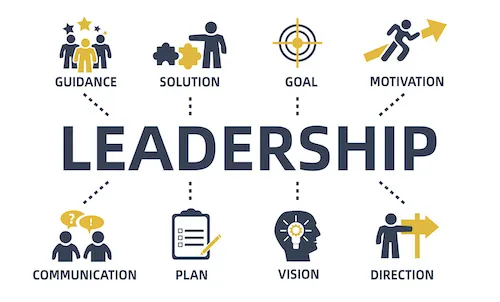True leadership is about setting a standard that others willingly follow. Leaders who exemplify discipline, transparency, and commitment create environments where these traits become the norm. Their influence extends beyond directives and policies; it is embedded in the daily actions that shape organizational and national culture.
When leaders practice what they preach, credibility follows. Employees, citizens, and followers take cues from the conduct of leaders, and this ripple effect strengthens cohesion and productivity. A workplace where the leader values open communication, for example, naturally fosters collaboration and idea-sharing. In a nation, a leader who prioritizes accountability encourages responsible governance.
Transformational Leadership: A Blueprint for Influence
The concept of transformational leadership revolves around inspiring and motivating individuals to achieve their full potential. This leadership style has four key pillars:
Role Modelling (Idealized Influence): Leaders set an example through their actions, earning the admiration and trust of those they lead.
Visionary Thinking (Inspirational Motivation): They communicate a compelling future that energizes and unites people.
Encouraging Innovation (Intellectual Stimulation): They challenge outdated ideas and inspire creative solutions.
Personalized Support (Individualized Consideration): They recognize and nurture individual strengths within their teams or communities.
By embodying these qualities, leaders foster both personal and collective growth, ensuring progress is not just spoken about but actively pursued.
The Cost of Hypocrisy in Leadership
When leaders fail to practice what they preach, the consequences are severe. Empty promises breed cynicism, morale deteriorates, and motivation dwindles. Over time, people lose confidence in leadership, leading to disengagement and stagnation. Hypocrisy in governance and business alike erodes public trust, making future commitments less believable.
Such a leadership disconnect is evident when leaders demand discipline but indulge in excesses, call for sacrifice but enjoy privileges, or promote transparency while engaging in secrecy. Such contradictions weaken institutions and make meaningful change impossible.
President Bio and the ‘Tok n Do’ Paradox
In Sierra Leone, President Julius Maada Bio’s administration adopted the slogan “Tok n Do”—a promise to back words with action. However, growing public frustration suggests that many of these promises remain unfulfilled. Infrastructure projects, economic reforms, and governance improvements touted by the administration often fail to materialize in ways that impact citizens’ daily lives.
Political slogans alone cannot sustain trust. Actions must reinforce commitments, or leaders risk alienating those they seek to serve.
Symbolic Acts and Their Power
Small but meaningful actions from leaders can have far-reaching effects. Studies show that when political figures embrace sustainable habits—such as reducing excessive travel or adopting energy-efficient practices—citizens are more likely to follow suit. These symbolic gestures enhance perceptions of leadership authenticity and competence, strengthening public confidence.
This effect, known as the “leader amplification effect,” highlights how leaders’ behaviours are magnified in the public eye. Every decision, whether ethical or self-serving, sends a message. When leaders consistently embody the change they advocate, they cultivate a culture of accountability and trust.
Authentic Leadership: The Path Forward
The demand for authentic leadership is stronger than ever. People seek leaders who walk the walk—those who demonstrate self-awareness, transparency, and unwavering commitment to their principles. Authentic leaders create spaces where open dialogue thrives, where integrity is non-negotiable, and where accountability is the foundation of governance.
The ultimate test of leadership is not in words spoken but in actions taken. Whether in government, business, or community organizations, those who lead by example inspire lasting change.
The challenge remains: will our leaders merely speak of progress, or will they embody it? The choice will define the future.












